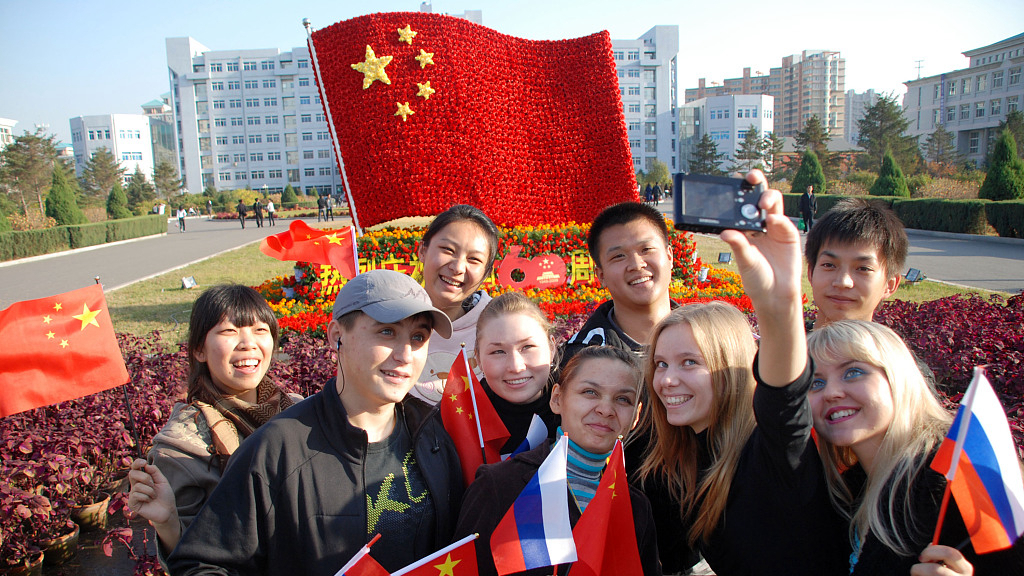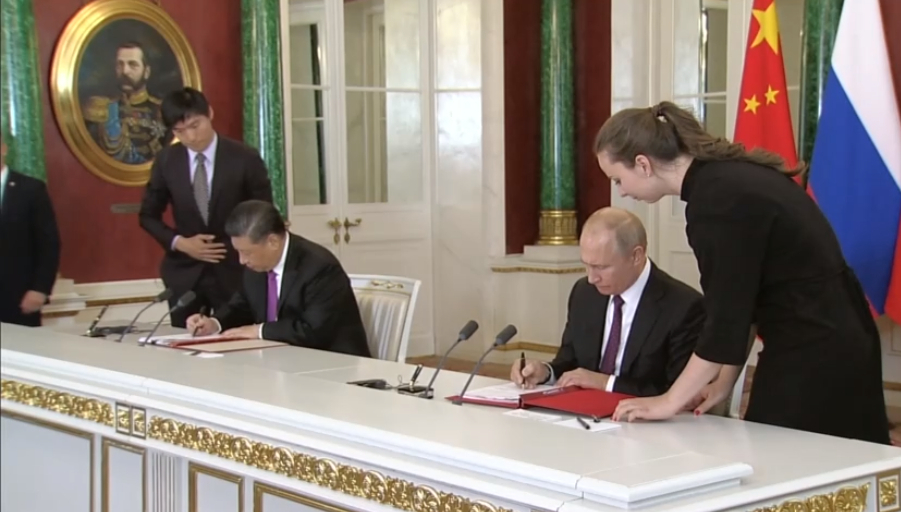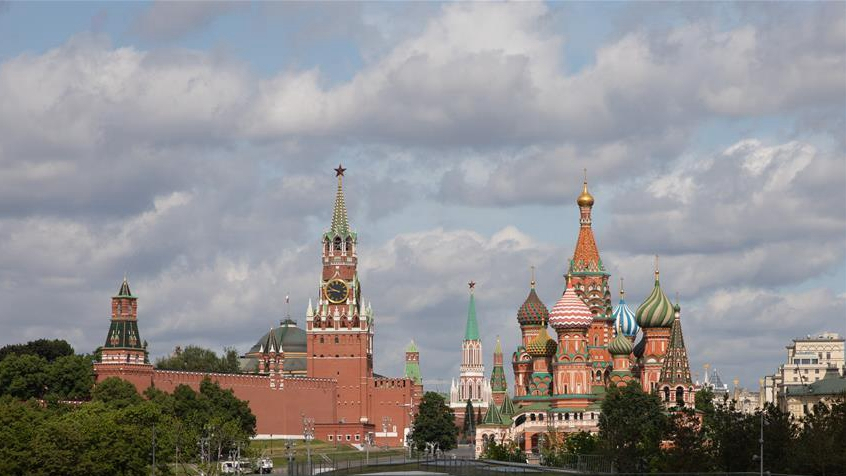
Opinion
11:35, 06-Jun-2019
How Sino-Russian ties are growing
Updated
16:33, 06-Jun-2019
Cui Zheng

Editor's note: Cui Zheng is the associate professor at the Research Center for the Economies and Politics of Transitional Countries, Liaoning University. The article reflects the author's opinion and not necessarily the views of CGTN.
China and Russia have agreed to upgrade their relations to a comprehensive strategic partnership of coordination for a new era, a decision made at a meeting between Chinese President Xi Jinping and his Russian counterpart, Vladimir Putin on Wednesday.
The cornerstone and driving force for Sino-Russian relations
China and Russia are the respective largest neighboring countries for each other. After seven decades of development, the diplomatic ties between the two sides have become increasingly more mature, stable and resilient. In 2001, the two nations signed the Treaty of Good-neighborliness and Friendly Cooperation, a fundamental political document which set the stage for the strategic bilateral partnership featuring equality and mutual trust, with the two sides pledging that they would “remain friends forever and never become enemies”.
This laid a foundation for the rapid development of the Sino-Russian relations in a foreseeable period. In 2004, China and Russia settled all the territorial disputes concerning the 4,300-kilometer border, which cleared the way for the further development of the bilateral ties. The Sino-Russian relations are based on mutual trust, mutual support, and generations of friendship for common progress, and are characterized by non-alignment, non-confrontation, and non-targeting third countries. These are vital to the enduring ties between the two nations.

Chinese President Xi Jinping and Russian President Vladimir Putin sign a cooperation agreement in Moscow, Russia, June 5, 2019. /Screenshot from CGTN Live
Chinese President Xi Jinping and Russian President Vladimir Putin sign a cooperation agreement in Moscow, Russia, June 5, 2019. /Screenshot from CGTN Live
Absolute Non-ideologicalization is the key to the establishment and development of Sino-Russian relations. Both countries respect each other's choice of development paths, do not interfere with each other's internal affairs, and staunchly support each other on important issues concerning their respective core interests and major concerns. Because of this, the relationship has been moving forward and is now at its best in history. It has become the major-country relationship featuring the highest level of mutual trust, cooperation, and strategic value, serving as a paradigm for other major-country relations.
At present, China and Russia share the historic mission of national development and revitalization. Both countries believe that they can bring important development opportunities for each other, rendering strong support for one another. The two nations have been cooperating and complementing each other in areas such as economy and trade, energy, military ties, science and technology, and cultural and people-to-people exchanges, leading to many pragmatic outcomes. This is a critical factor for the two countries to become increasingly closer.
The design of and guidance for the Sino-Russian relations
After President Vladimir Putin took office in 2000, the high-level visits, especially head-of-state diplomacy between the two sides, have played a vital role in the transformation from Sino-Soviet relations to Sino-Russian relations. After Mr. Putin was re-elected as President of Russia in 2012 and Xi Jinping was elected President of China in 2013, both of them chose the other country as the first stop for their overseas trips.

The Kremlin Palace (L) and Saint Basil's Cathedral in Moscow, capital of Russia, June 3, 2019. /Xinhua Photo
The Kremlin Palace (L) and Saint Basil's Cathedral in Moscow, capital of Russia, June 3, 2019. /Xinhua Photo
President Xi and President Putin, the two helmsmen in the Sino-Russian relations, have had 30 meetings on various bilateral and multilateral occasions since 2013. Head-of-state diplomacy is at the core of the high-level exchanges and cooperation between the two sides. Both Presidents' top design and strategic guidance play a vital role in the bilateral ties, not only contributing to the deep personal friendship between themselves, but also to the synergy between each country's domestic development strategies and foreign policies.
What does the handshake in 2019 imply?
President Xi is visiting Russia from June 5 to June 7, 2019, which is his first state visit to Russia since he began his second term as President of China. During this visit, the two sides have signed two important documents. One is on the new positioning of the Sino-Russian partnership, which will usher in a new era for the bilateral relations; the other is a joint statement on the two countries' views on the profound changes of the international landscape and the importance of maintaining its stability.
In addition, President Xi attends the St Petersburg International Economic Forum for the first time, on which he will, centering around the theme of the forum “Creating a Sustainable Development Agenda”, set forth China's important proposals concerning sustainable development, advocate for multilateralism, and call for improvement of global governance.
For the two countries, President Xi's state visit to Russia this time will strengthen the political mutual trust, further bilateral cooperation, deepen the friendship between China and Russia, and promote the Sino-Russian comprehensive strategic partnership of coordination. Currently, both countries are being challenged and suppressed by the U.S. Under these circumstances, the two countries are all the more willing and ready to enhance cooperation.
The Chinese side can further express its views on this forum to allay and resolve other countries' doubts and concerns about China arising from the China-U.S. trade war. Against the backdrop of the profoundly changing international landscape, the stability and development of the Sino-Russian relations and the close and efficient cooperation in international affairs between the two sides have played a critical role in contributing to world peace.
(If you want to contribute and have specific expertise, please contact us at opinions@cgtn.com.)

SITEMAP
Copyright © 2018 CGTN. Beijing ICP prepared NO.16065310-3
Copyright © 2018 CGTN. Beijing ICP prepared NO.16065310-3